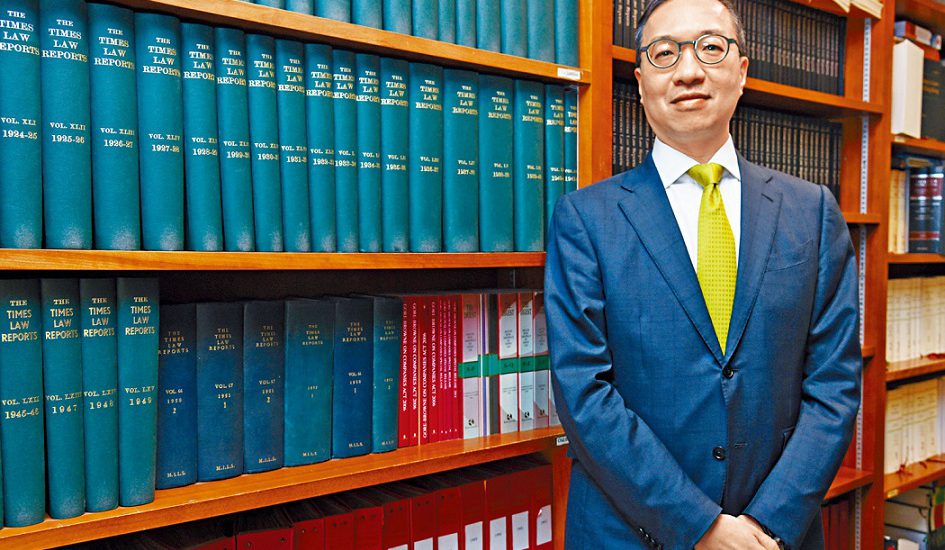Raymond Li : Removing presidency limits a crucial step towards China’s great rejuvenation

黎沛文:國歌條例將進一步明確表達自由的界限

何建宗:開放港人大灣區買樓 滿足置業願望

With China’s March “two sessions” of the national legislature and top political advisory body – is in full swing, the plan to remove the two-term limit of the president and vice president of the People’s Republic of China as prescribed in Article 79 (3) of the PRC Constitution, among a slew of constitutional amendments proposed by the Chinese Communist Party (“CCP”), was passed with near-unanimous approval by the National People’s Congress. Nevertheless, when it came to the Western media spotlight, it sparked off unwarranted critics lambasting the constitutional amendment as the return of Mao’s era of strongman politics, which is nothing but the Western paranoia of China’s global peaceful rise.
The critics against the removal of the presidency limits, stoking fear that China would become more authoritarian and dictatorial and that a president might service life, demonstrates its predisposition towards China’s political system out of irrational, ideological biases. In China politics, the real power lies in the positions of the party’s general secretary and chairman of Central Military Commission, on which there are no term-limit. The presidency, however, is the least important of the ‘trinity’ system – the three positions President Xi holds as the head of the party, the military and the state, which is largely ceremonial since its creation in 1954, carrying weight only to the extent that it enables its holders to meet other heads of state on an equal footing. Likewise, in Germany, the role of president who although is the head of state, is ceremonial as substantive executive powers are vested in the Chancellor.
Moreover, by aligning the removal of presidency two-term limit of the PRC to an autocrat holding power for life, it is no different from what a Chinese saying goes – “chasing after wind and catching shadow”, which is far adrift from the political reality in China. For example, according to Article 38 of the CCP Constitution, it provides that party members in leadership positions at every level do not hold posts for life and can be transferred from or relieved of their post. In brushing aside the Western critics, how long President Xi remains as our president may be politically insignificant as long as he continues to be the head of the party and the military. While Deng Xiaoping never held office as the head of state and party after Mao’s reign, nobody in or outside China would cast any doubt on his ruling authority in China.
During the past 5 years under President Xi, strong efforts with remarkably splendid results were seen with China pushing ahead with root and branch reforms cleaning up rising debt, wiping out corruption of all-cadre levels nationwide, and ending poverty. In ensuring the continuity and full implementation of the national policies, the enduring tenure of President Xi as the core of CCP, free from any presidential term-limit, is essential. In addition, economic endeavours such as state-owned enterprise reforms as well as President Xi’s brainchild – “Belt and Road Initiative” cannot be completed in short-term, the political stability and certainty with President Xi at the helm is pivotal for China to become a ‘moderately affluent society’ by 2021 and a ‘modern socialist country’ by 2049 as the national goals in pursuing the dream of the rejuvenation of China as a nation state, commonly shared by our more than 1.3 billion compatriots.
Taking a leaf from our Western liberal counterparts, there are hardly any restrictions in countries like Germany, Japan, Britain and Singapore on how many terms a leader can serve. For example, the chancellor of Germany is not subject to any term restrictions as long as he or she retains a majority in the lower house of the deferral parliament, which has a term of 4 years. Against such backdrop, incumbent Angela Merkel, has been a chancellor for more than 12 years after taking office in November 2005. Therefore, the constitutional amendment to remove the term-limit of Chinese presidency is hardly unprecedented as similar arrangement has long been in place in Western democracies. If removing the Chinese presidency term-limit were watched with caution and suspicion by the Western media, would they, on the same par, also have their heads of states subject to the same scrutiny and criticism?
Amid torrents of negative reports by Western naysayers with total disregard of China’s political system and the law-making procedure legally proceeded, the constitutional amendments, including the removal of the presidency two-term limit is unquestionably welcome as nearly 3000 NPC delegates casted their ballot in support last Sunday, unanimously reflecting “the common will of the people and the party”. More importantly, in reflecting the party’s leadership now constitutionally recognized as the “most fundamental feature of socialism with Chinese characteristics”, the removal of the presidency term-limits, in line with the party secretary and the military head, can help maintain the trinity system and improve the institution of the CCP leadership of China.
As China is at the critical juncture on the path of the great national rejuvenation, by advancing law-based governance and upholding socialism with Chinese characteristics in the new era, China will continue to evolve and thrive in accordance with our country’s unique national conditions and best interests. The removal of term-limit of the PRC presidency is a single, yet crucial step China ought to take to embark on this thousand-mile long path.
Raymond Li : A member of One Country Two Systems Youth Forum
Photo taken from: https://sputniknews.com/columnists/201710191058370558-xi-jinping-china-national-rejuvenation/




